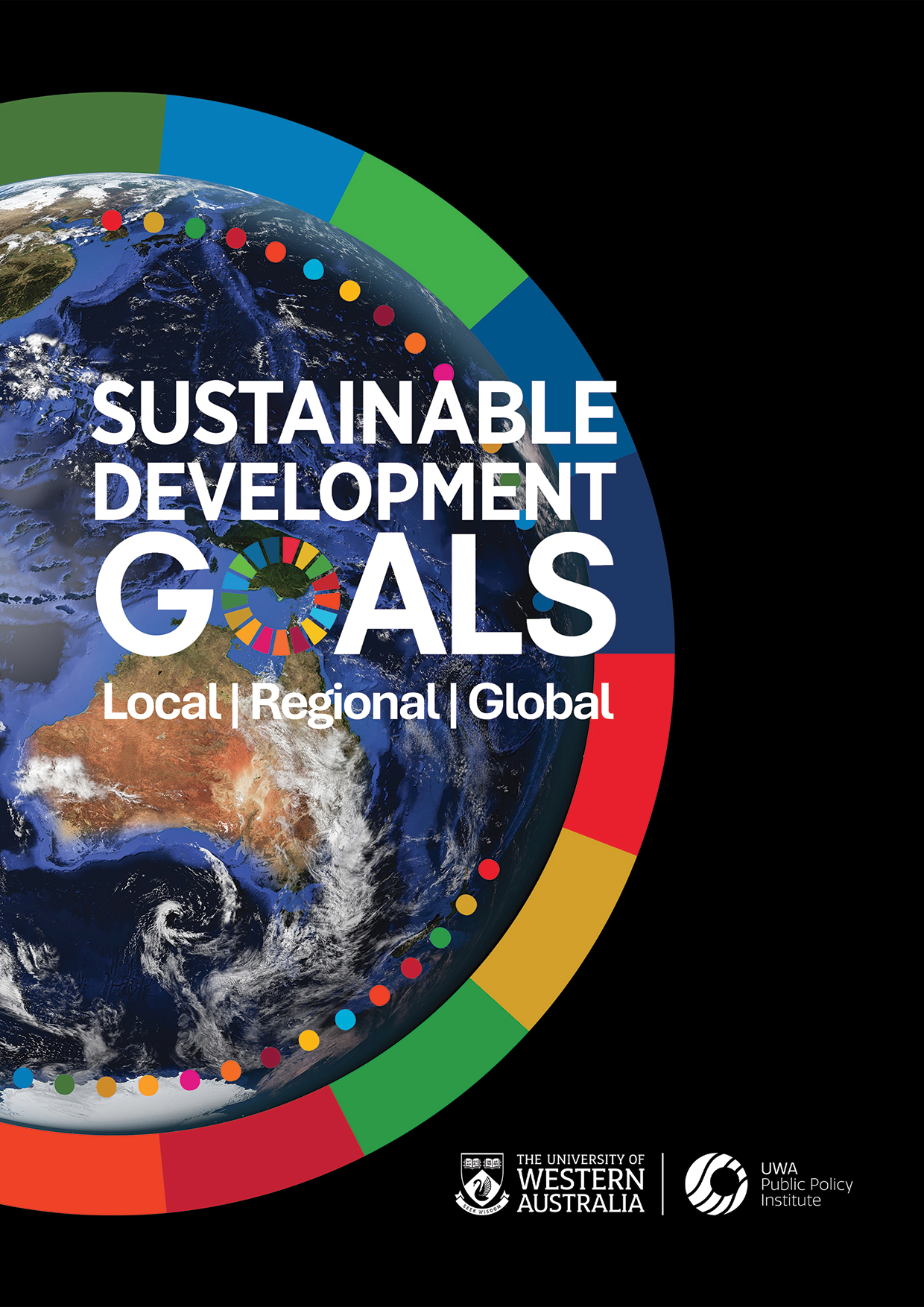UWA Public Policy Institute
“Improving lives through evidence-based policy”

Welcome to the UWA Public Policy Institute, where we bridge the gap between cutting-edge research and real-world impact. We bring the University of Western Australia's expertise to bear on pressing social, economic, and political issues across Western Australia, Australia, and the Indian Ocean region.
Publications
Our Team
Our Fellows
International Advisory Board
International Advisory Board
Past Events
Featured Publications
 |
 |
 |
Sustainable Development Goals: Local | Regional | GlobalSustainable Development Goals: Local | Regional | Global brings together leading insights from academics, practitioners, and policy experts across all 17 SDGs. This comprehensive publication highlights innovative research, real-world case studies and evidence-based pathways for accelerating sustainable development in Australia and beyond. |
WA 2050: People, Place, ProsperityWhat could Western Australia look like at mid-century and how do we get there? With 2050 a generation away, the report aims to stimulate progress, joining expertise across the sectors to expose future issues, their implications, the trade-offs involved, and the action that can be taken now to drive position change. |
Public Policy Engagement Guide: A Tool for UWA ResearchersThe only publicly-available guide of its kind in Australia, this publication upskills UWA researchers on how to engage potential government collaborators and funders, and how to make policy impact. It is a complement to the biannual 'How to work with government' researcher training workshops. |

Pathways to Politics for Women UWA
Pathways to Politics for Women is increasing the number of women in Australian politics by equipping diverse women to boldly embrace their political ambitions, thrive as leaders and make a profound contribution to society.
Through comprehensive practical training, workshops, mentoring and career-long support, we provide unparalleled expertise for women who are serious about driving change through political leadership.
We are proud to be running the program here at UWA in partnership with the Centre for Public Value UWA.
Collaborators
Discover the diverse network of partners and collaborators institutions working with the UWA Public Policy Institute to drive impactful research, innovation, and policy development across Australia.
- External
-
- Anglicare WA
- ASEAN-Australia Strategic Youth Partnership
- Australian Association of Constitutional Law
- Australian National University
- Centre for Women's Safety and Wellbeing
- Edith Cowan University
- Electoral Regulation Research Network
- Forrest Research Foundation
- Henry Halloran Research Trust
- Perth Design Week
- The Equity Project
- WA Museum Boola Bardip
- Western Australia Council of Social Service (WACOSS)
- UWA
- Pathways to Politics for Women
- APSA
Hear the latest
Join our mailing list to receive the latest from the UWA Public Policy Institute including event invitations, publications, and more.

